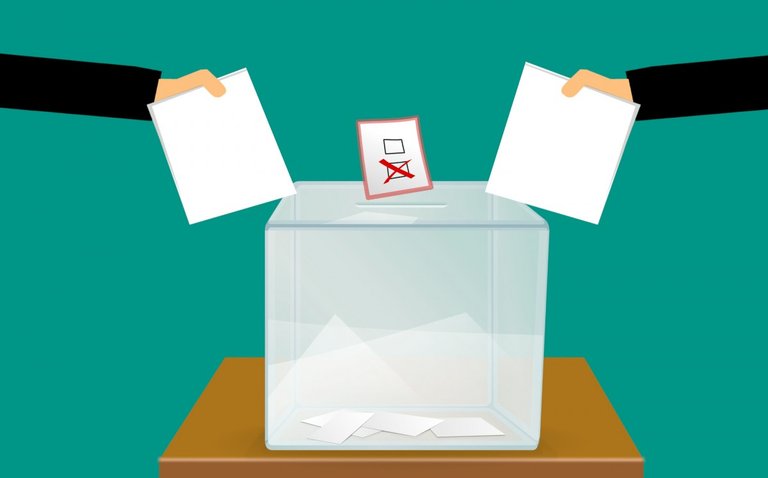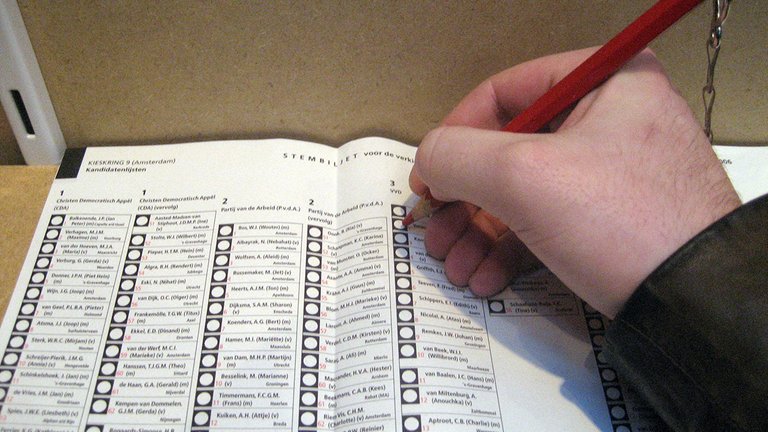Do we Vote Because We are Rational or Because it is a Norm
I have been hearing that the US elections is coming up and just like it will come and go, it has happened in a lot of countries and it will happen in many more depending on the year for a tenure. I have heard people say that their vote doesn't really have an impact on election results well, while this is debatable, statistically the chances of your one vote deciding the outcome of an election are lower than the chances of being successful if you put in the work.
Although, the chances are very low, and while a lot of people speak about not going to vote, people still troop out en-mass to cast their votes and this includes myself who went all out last year to cast my vote despite intimidation and politics being played. Just the same way I went out to vote, a lot of people will be going out to vote in the US elections that is coming in few days. So why do we go to vote even when we do not think or think that our vote as an individual cannot explicitly determine who would win?
I have noticed something when it comes to voting especially in my country which is similar in most countries and this is the fact that only 1 in three person eligible to vote actually cast their votes. This statistics might differ in different countries but when you look at the total number of adults of voting age in a country during a census to the number of voters in a election, you would be shock at the difference but I am not looking at why people aren't voting, I am concerned about why people like myself will go out to vote.
If want to understand our current voting paradox, we will have to go back to the 1950s looking at Anthony Downs a Economist and other people started to look at democracy differently basically through psychology so as to be able to understand why people make decisions especially when it had to do with voting. Anthony wrote that people who were rational would prefer to vote because they cannot unilaterally come to decide the outcome of the election, so in other to determine the outcome, they all come out to vote and even when they are not on the winning side, they are sure that they enjoyed the outcome of the election.
This argument says that we are willing to do things provided the benefit outweighs the risk. This was stated because we are said to be rational and with rational thought when it comes to election, we weigh the cost and the benefit and so pick one that has higher reward or least cost. This isn't always true for humans because sometimes, we can be rational, other times emotional, and other times just pick something because we just needed to pick something.
Voting is not completely rational as there have been cases where people have tried to make influence people to come and vote by providing food, and free drinks but these didn't boost the turnout drastically. It looks like voting has to do with another argument which is Prescriptive Social Norms where we vote because we have been told that it is a fundamental thing to do. They are just implicit rules that we carry around since we were children, they aren't laws like for instance, nobody will arrest you for not voting but since it has been termed as your fundamental right to, you ensure you do not miss the opportunity to provided you can do it.
Because we want to be among the group of people who voted, some of us will decide to vote even when we will not be breaking the law if we do not vote. But since we are species that love to be in groups just like our ancestors, we want to be a part of the group of people who voted instead of to defend oneself from the heat of questions like why do you not vote, do you not know that your vote could change the result and so on.
Researchers have checked out experiments on the impact of social norms and election where people were asked to come out to vote else their neighbors would be told. This led to a massive turnout in that region where the experiment was carried out. People will always feel obligated to vote especially when they make a promise to and this is because there is a social norm to fulfill promises when made.
Actually, if you ask people why they vote, they will mention things like they want a better country even when they do not really need to vote. This is because they want to be a part of a group of people who want to do something for a greater good. I am sure if I ask you why you vote, you might have a contrary reason but at the end of the day, it has to do with norms, being a part of a group, or because of a greater good since it wouldn't cost you much to do it.
Reference
https://www.sciencedaily.com/releases/2008/03/080313124403.htm
https://plato.stanford.edu/Entries/altruism-biological/
https://plato.stanford.edu/archives/win2020/entries/voting/
https://www.researchgate.net/publication/231980865_Vindicating_Anthony_Downs
https://www.ncbi.nlm.nih.gov/pmc/articles/PMC2614248/
https://compass.onlinelibrary.wiley.com/doi/full/10.1111/phc3.12774
https://www.pnas.org/doi/epdf/10.1073/pnas.75.1.385
https://academic.oup.com/pq/article/74/3/844/7278884?login=false
https://journals.sagepub.com/doi/10.1177/1043463107077384
https://www.nber.org/system/files/working_papers/w13562/w13562.pdf
https://cepr.org/voxeu/columns/voting-rational-decision
https://web.mit.edu/6.034/www/6.s077/Buckner-2017-Philosophy



Sending love and curation Ecency vote. keep giving the best♥️
Follow Eceny's curation trail to earn better APR on your own HP.
Thanks for your contribution to the STEMsocial community. Feel free to join us on discord to get to know the rest of us!
Please consider delegating to the @stemsocial account (85% of the curation rewards are returned).
Thanks for including @stemsocial as a beneficiary, which gives you stronger support.